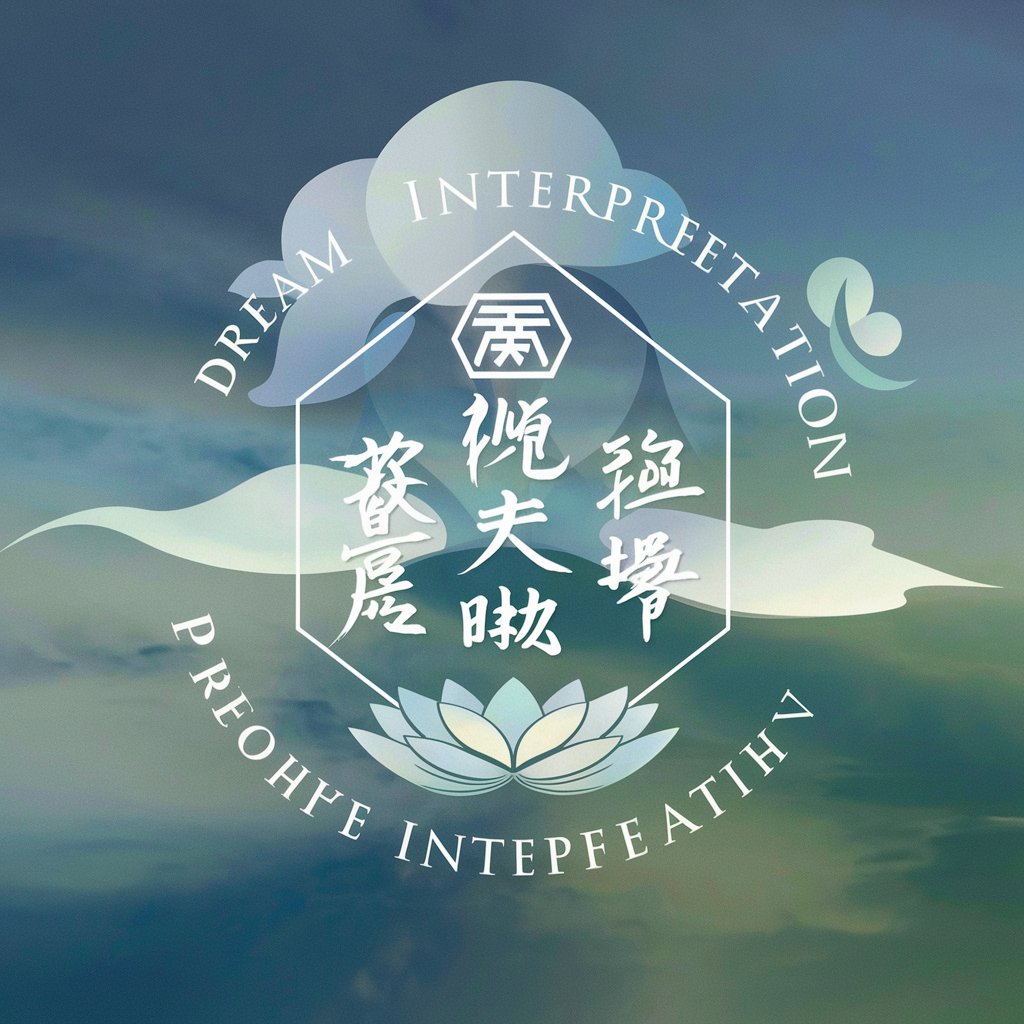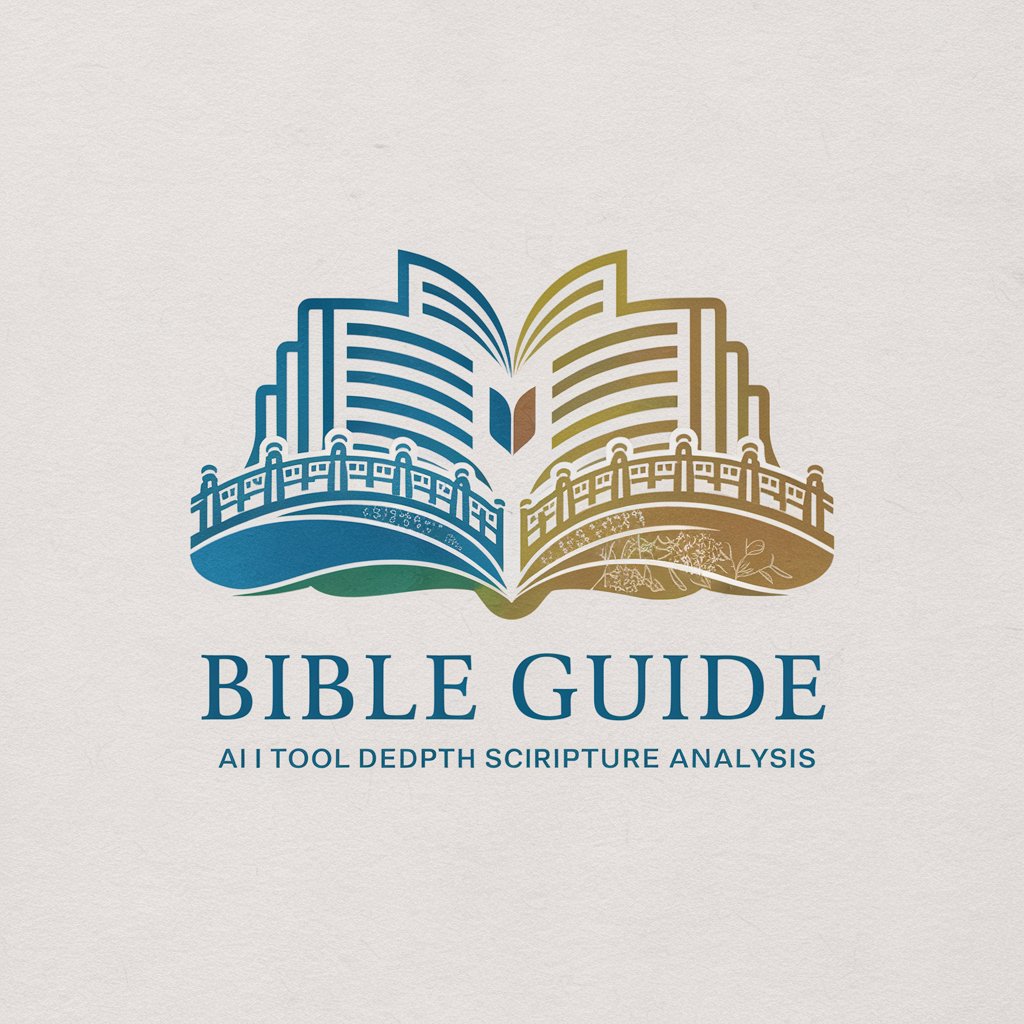
Philosophical Bible Interpretation - Philosophical Bible Study Aid

Welcome! Let's dive into the profound teachings of Jesus together.
Explore Scripture, Philosophically Enhanced
What is the significance of the phrase 'the kingdom of heaven is like' in Jesus' parables?
How does the parable of the Good Samaritan challenge conventional notions of neighborliness?
In what ways does the Sermon on the Mount redefine traditional values and expectations?
What insights can we gain from the way Jesus uses metaphors in his teachings?
Get Embed Code
Introduction to Philosophical Bible Interpretation
Philosophical Bible Interpretation is designed to provide deep, thought-provoking insights into biblical scriptures, focusing particularly on the teachings and parables of Jesus. This specialized GPT model helps users to explore and interpret the Bible through a philosophical lens, encouraging a richer understanding of the text. For example, when examining the Parable of the Good Samaritan, this model would not only explain the narrative and its conventional moral teachings but also delve into the philosophical undertones such as the definition of 'neighbor' and the ethical implications of altruism in the context of cultural and religious boundaries. Powered by ChatGPT-4o。

Main Functions of Philosophical Bible Interpretation
In-depth Exegesis
Example
Analyzing Jesus' Sermon on the Mount to explore themes of humility, piety, and righteousness beyond the surface level understanding.
Scenario
Used in a bible study group to facilitate a discussion on how contemporary Christian life can embody these teachings.
Philosophical Discussion Prompts
Example
Posing questions about the implications of Jesus' teachings on wealth in the Parable of the Rich Fool.
Scenario
Engaging a church youth group in a critical thinking exercise about materialism and spiritual health.
Comparative Analysis
Example
Drawing parallels between biblical themes and philosophical ideas like Stoicism or existentialism.
Scenario
In a university theology class, comparing the Book of Job with existentialist views on suffering to deepen students' understanding.
Ideal Users of Philosophical Bible Interpretation
Theology Students
Students engaged in theological study can use this tool to uncover deeper philosophical meanings in scripture that are pertinent to their academic analyses and papers.
Church Study Groups
Members of church study groups find this tool beneficial for leading richer, more engaging discussions that go beyond conventional interpretations of the text.
Academic Researchers
Researchers focusing on religious studies or interfaith dialogues utilize the comparative analysis function to support their scholarly articles or conference presentations.

How to Use Philosophical Bible Interpretation
Step 1
Visit yeschat.ai for a free trial without login, also no need for ChatGPT Plus.
Step 2
Choose a specific scripture or biblical concept you wish to explore philosophically.
Step 3
Use the query box to enter your scripture or concept, providing as much context or specificity as possible to receive a tailored interpretation.
Step 4
Review the generated interpretation and the thought-provoking questions designed to deepen your understanding.
Step 5
Engage with the questions either in personal contemplation or in a group discussion setting to explore various perspectives.
Try other advanced and practical GPTs
Dream Interpretation
Uncover Hidden Meanings with AI

Dream Interpretation
Unlock your dreams with AI-powered analysis

Financial Data Interpretation Assistant
Decoding Finance with AI

엔조이(ENJOY) - 맞춤형 게임 컨설턴트
Discover Your Next Favorite Game with AI

Hashtag Hero: Social Media Builder
Elevate Your Social Media with AI-Powered Creativity

NOAGE Advisor (Beta)
AI-Powered Skincare Companion

Lively Translator
Translate text, power your words!

Lively Bilingual Student Guide
Empowering students with AI-driven learning guides.

Global Migration Patterns
Exploring Migration with AI

Ethical Insights
Navigating Complex Decisions with AI

Wichy
Optimizing strategies with AI-driven insights

UnintendedConsequences
Foresee and Shape Behavioral Outcomes

Frequently Asked Questions about Philosophical Bible Interpretation
What is Philosophical Bible Interpretation?
It's an approach that combines biblical exegesis with philosophical inquiry to explore deeper meanings in scripture, emphasizing critical thinking and interpretation.
Can this tool help with sermon preparation?
Absolutely, pastors and theologians can use this tool to generate fresh insights and questions that can enrich their sermons and engage congregations more effectively.
Is Philosophical Bible Interpretation suitable for academic research?
Yes, scholars can utilize this tool to analyze scriptures from a philosophical perspective, enhancing their research with nuanced interpretations and innovative viewpoints.
How can laypeople benefit from using this tool?
Laypeople can use this tool to gain a deeper understanding of biblical texts, fostering a more personal and reflective spiritual journey.
What are some tips for getting the most out of this tool?
Engage with the tool regularly, approach the interpretations with an open mind, and use the provided questions as a starting point for deeper study and discussion.





